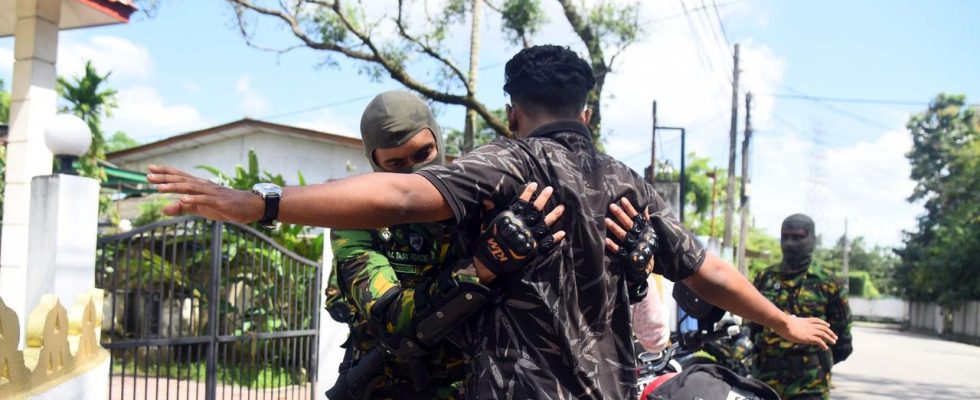Police in Sri Lanka have arrested nearly 15,000 people, including more than 1,000 drug addicts, in a major anti-drug operation. Human rights activists criticized the approach.
According to police, almost 15,000 people have been arrested in a nationwide drug raid in Sri Lanka.
During the week-long operation, which was carried out together with the military, more than 13,660 suspects and almost 1,100 addicts were arrested, police in the Asian country said.
The addicts were taken to a military rehabilitation facility. According to the information, a total of almost 440 kilograms of drugs were confiscated, including cannabis, hashish and heroin.
Criticism from human rights activists
Human rights activists sharply criticized the operation and described it as illegal. It was carried out without a search warrant, explained lawyer Hejaaz Hizbullah.
Activist Ambika Satkunanathan criticized the searches for not being based on evidence but for targeting “only poor areas.” The police arrest drug users and small-time dealers, but do not focus on large drug dealers.
Death penalty for drug trafficking
Drug use and trafficking are widespread in Sri Lanka, although drug criminals face the death penalty in the South Asian country.
Contrary to the Catholic Church’s official teaching on the death penalty, the Archbishop of Colombo, Cardinal Malcolm Ranjith, welcomed the reintroduction of the death penalty for drug traffickers in July 2018.
Tightened security measures over Christmas
According to the police, further searches will be suspended on Christmas Day because security forces are needed to protect churches on Christmas Eve and Christmas Day. The raids will continue after December 26th.
At Easter 2019, 269 people were killed and 500 injured in bomb attacks on three churches in the capital Colombo. The perpetrators were Islamist terrorists. However, the masterminds of the terror have not yet been identified.
Cardinal Ranjith and many security experts still express the suspicion that the then government of Sri Lanka had a hand in the attacks for reasons of power politics.

